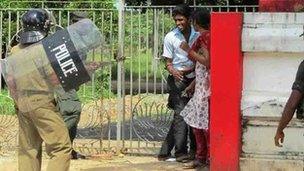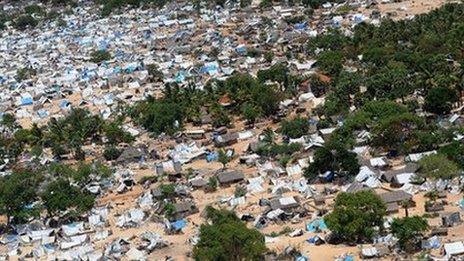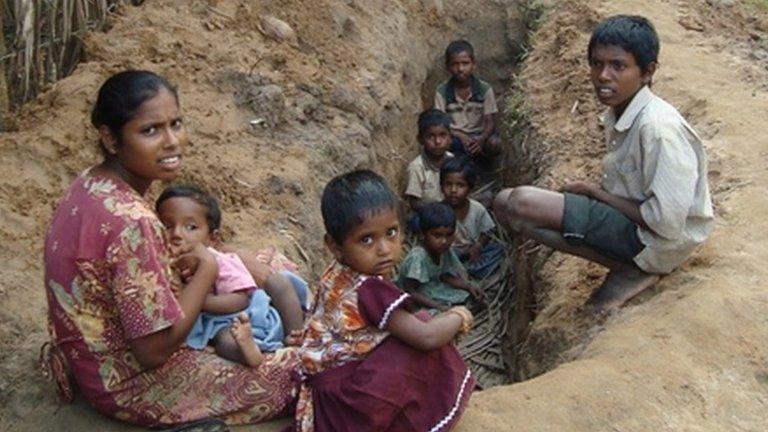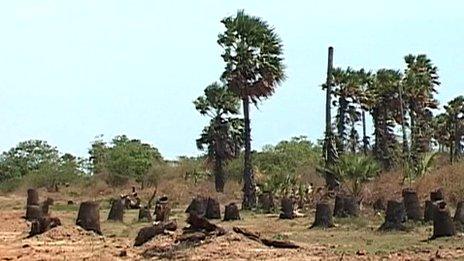Jaffna University Tamil students boycott classes
- Published

The campus was the scene of the worst political disturbances since the war ended in 2009
Students at Jaffna University in northern Sri Lanka have started a two-day boycott of classes after clashes with security forces on Wednesday.
They say they do not feel safe after several were beaten and injured in the worst political disturbances since the civil war ended in 2009.
Security forces entered the university, disrupting students marking a commemoration of dead rebel fighters.
The army said it had to restrain people who were throwing stones.
But some staff at the university accused the security forces of starting the violence, saying they believe the police baton-charged a group of students who had begun a planned march through the streets.
Only after that did some students throw stones, they said.
One staff member told the BBC the aftermath of the clashes was "like a battlefield". And on Thursday, reports said there was little activity on the campus.
There were Sinhala and Muslim as well as Tamil students on the campus, one staff member emphasised.
Tension in the north
Across the former war zone in northern and eastern Sri Lanka there is a higher military presence than usual.
Asked by the BBC why the students in Jaffna should not be allowed to march in the streets, Jaffna's military commander, Maj-Gen Mahinda Hathurusinghe, said the students have been "categorically told not to" because "they would become violent".
He said that "for the betterment of the country", "Martyrs' Day" - which commemorates dead Tamil Tiger fighters - should not be observed by people.
The tensions arose as some students marked the death of Tamil Tiger guerrillas at small candle-lit memorials, while well-produced pro-Tiger posters appeared in various parts of the formerly Tiger-held territory.
Since the end of the war this had hardly happened within Sri Lanka, where the Tigers and their separatist ideology are strictly banned - although Tiger sympathisers in the diaspora call 27 November "Martyrs' Day" and mark it as such.
The clashes point to simmering tensions three-and-a-half years after the mainly Sinhalese security forces crushed the Tamil separatists, and as the army maintains tight control over the whole of the north where the war was fought most bitterly.
In a Jaffna suburb, a petrol-bomb was thrown at the offices of a small Tamil political party on Thursday. There were no reports of injuries. It is unclear who did it or whether it was related to the campus trouble.
- Published13 November 2012

- Published11 January 2011
- Published9 January 2015
- Published11 October 2012

- Published15 August 2012

- Published9 January 2015